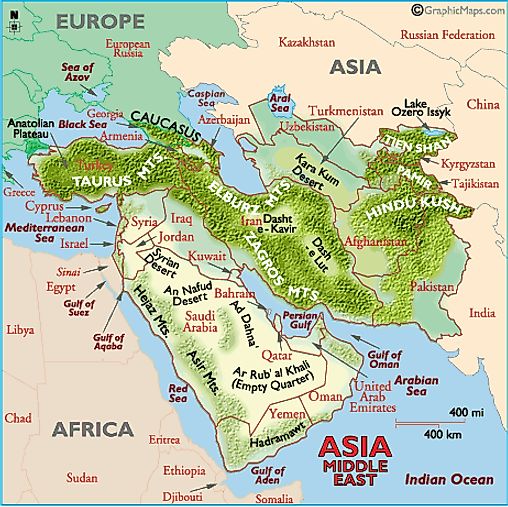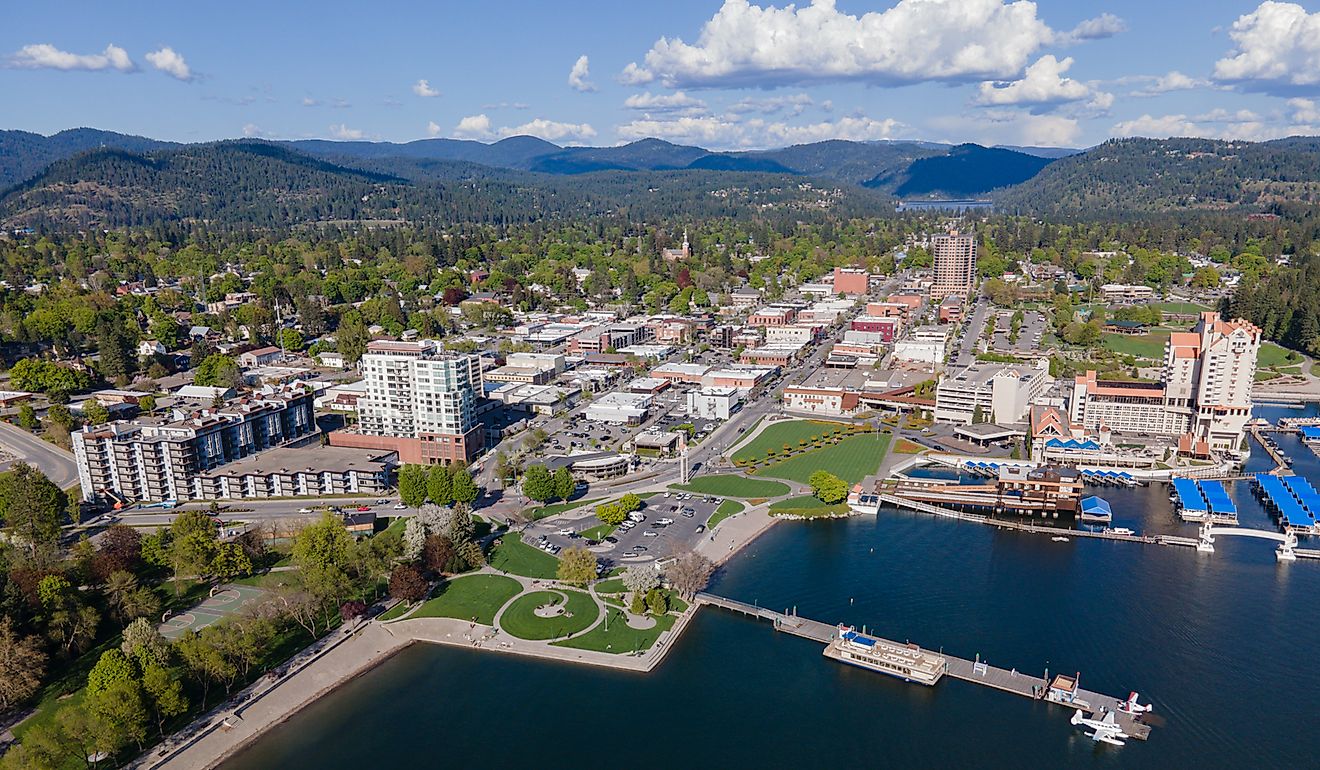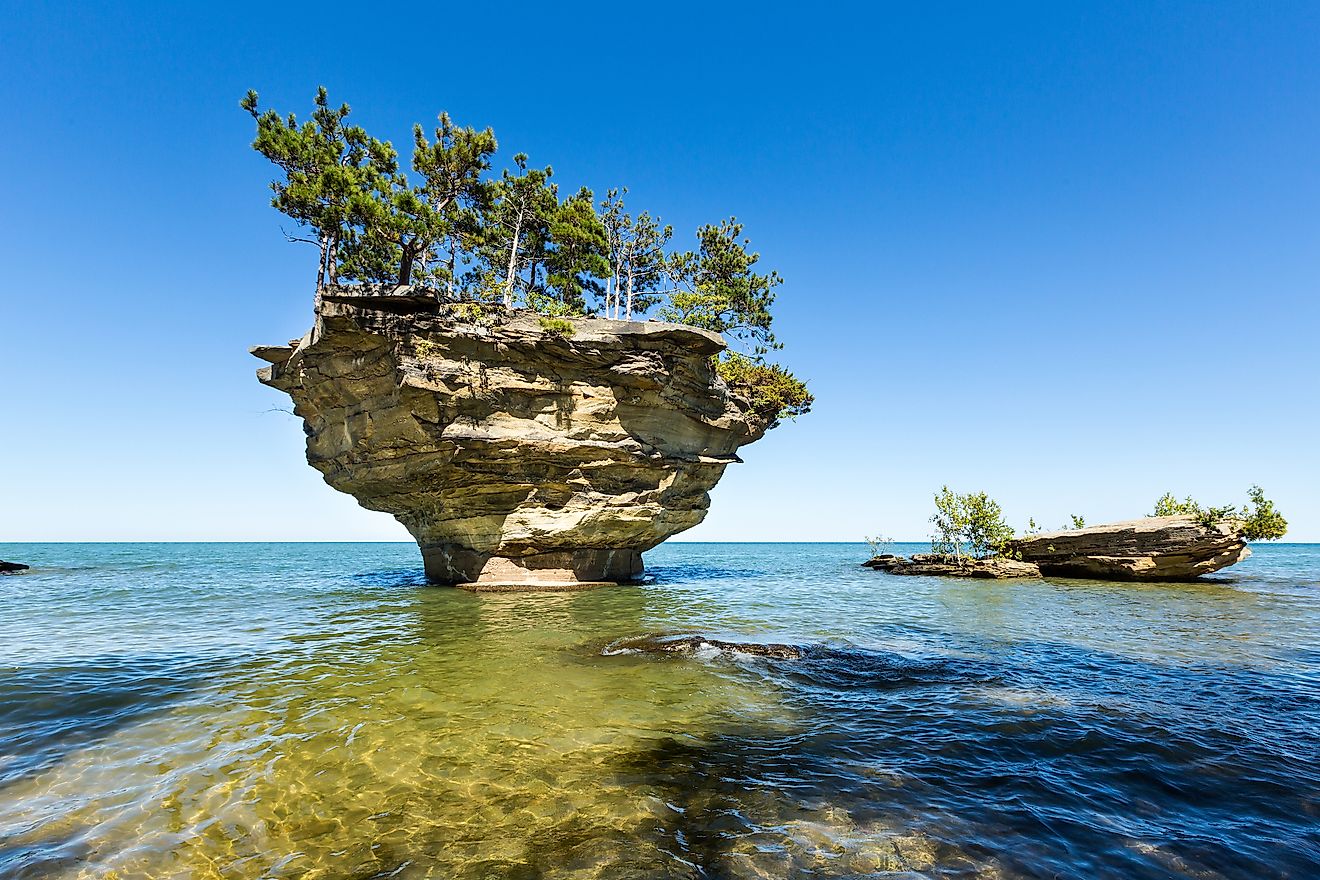Middle East Map, Map of Middle East Landforms, Turkey, Iraq, Dubai Map - Worldatlas.com

ANATOLIAN PLATEAU
This generally barren and arid plateau of central Turkey averages about 500 meters in elevation. Farming and livestock raising (the major industries), are difficult occupations here as extreme temperatures, both summer and winter are commonplace. Regardless, scattered towns and villages cover the landscape.
AN NAFUD DESERT (part of the Arabian Desert)
This desert of western Saudi Arabia is famous for gigantic sand dunes, some reaching over 100 ft.high.
AR RUB' AL KHALI DESERT (Empty Quarter) also (Arabian Desert)
Known as the Empty Quarter, it's the largest (only sand) desert in the world and famed for huge sand dunes that can extend for over 25 miles. It covers most of southern Saudi Arabia, and is almost moistureless. The Ad Dahna' is the northern expanse that connects to the An Nafud Desert.
The Arabian Desert is approximately 1,000,000 sq miles in total size.
ASIR & HEJAZ MOUNTAINS
Running along Saudi Arabia's border with the Red Sea, this range of lower mountains averages 6,000 - 7,000 ft. (1,829 - 2,130m)
CAUCASUS MOUNTAINS
Located between the Black and Caspian Seas, these mountains dominate the landscape of Armenia, Azerbaijan and Georgia (all part of southeastern Europe,) where the Middle East begins. Many of the volcanic peaks here exceed 15,000 ft., with the highest point being Mt. Elbrus at 18,481 ft. (5,633m).
DASH -E LUT (Lout Desert)
This region of eastern Iran is an arid, wind-blown desert, completely surrounded by mountains. In the summer months, it can be one of the hottest and driest spots on the planet. In some areas here rain has not been measured.
DASHT -E KAVIR (Kavir Desert)
This plateau of north-central Iran is often referred to as the "Great Salt Desert." It's the largest desert in the country and is mostly uninhabited wasteland covered with crusty salt ridges.
ELBURZ MOUNTAINS (or Alborz)
Extending for almost 620 miles along Iran's northern border with the Caspian Sea, these jagged mountains average over 9,000 ft, with the highest point being Mt. Damavand, a dormant volcano, at 18,602 ft.(5,670m)
HADRAMAWT
This low mountain range (and region) of Yemen averages about 3,500 ft. (1,067m), with the highest peak estimated at 8,000 ft., (2,440m).
HINDU KUSH
These dramatic mountains form a natural border between Afghanistan and Pakistan, with many snow-capped peaks reaching over 22,000 ft. The highest point is Tirich Mir at 25,282 ft. (7,706m).
KARA KUM DESERT
This desert of south-central Turkmenistan is a large mass of sand known for its towering sand dunes extending in all directions. It's about 115,000 sq. miles in size.
PAMIR
This region and its namesake mountains stretch across much of Tajikistan and parts of Afghanistan, China and Pakistan, and similar to the Hindu Kush, numerous peaks exceed 22,000 ft, with the highest point being Pik Samani at 24,590 ft. (7,495m).
SYRIAN DESERT
At approximately 200,000 sq, miles (518,000 sq, km) it covers parts of Jordan, Syria, Saudi Arabia and western Iraq. Very little rain falls in this arid wasteland, however, Arab nomads inhabit the desert and successfully raise cattle and camels. Oil pipelines are commonplace, as well as scattered oases.
TAURUS MOUNTAINS
This rugged chain extends across southern Turkey to its borders with Iraq and Iran. The highest point (Mt. Ararat) is located in the Eastern Taurus range. This extinct volcano is 16,583 ft. (5,137m) high. It is felt by biblical historians that Noah's Ark landed here.
The Koroglu and Ponic ranges stretch along the Black Sea coast of northern Turkey.
TIEN SHAN (also Tian)
Stretching almost 1,500 miles across Kyrgyzstan and well into China, this multiple range of mountains commonly exceed 19,000 ft., with the highest point being Pik Pobeda at 24,407 ft. (7,439m).
ZAGROS MOUNTAINS
The many ranges of the Zagros extend along southern and western Iran and into northern Iraq. Many peaks exceed 9,000 ft., with the highest point being Zard Kuh at 14,921 ft. (4,548m).
Landform Links
The World's Biomes (an excellent site) here!







